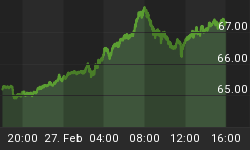In the short run, fiscal stimulus adds to GDP. In the long run it subtracts.
Damn the long-term consequences, Abe Orders New Stimulus Package After Election Win.
Japanese Prime Minister Shinzo Abe ordered a new round of fiscal stimulus spending after a crushing election victory over the weekend as evidence mounted the corporate sector is floundering due to weak demand.
Abe did not give details on the size of the package, but Japanese stocks jumped nearly 4 percent and the yen weakened over perceptions a landslide victory in upper house elections now gives him a free hand to draft economic policy.
An unexpected decline in machinery orders shows the economy needs something to overcome consistently weak corporate investment. Economists worry, however, that Abe's focus on public works spending will not tackle the structural issues around a declining population and workforce.
The government was ready to spend more than 10 trillion yen ($100 billion), ruling party sources told Reuters before the election.
"We are going to make bold investment into seeds of future growth," Abe told a news conference on Monday at the headquarters for his ruling Liberal Democratic Party (LDP).
Yen "Plunges" on Stimulus Announcement
Bloomberg reports Yen Plunges the Most Since 2014 on Abe's Fiscal Stimulus Plans
Japan's currency weakened against all of its 31 major peers after Abe, speaking in Tokyo on Monday, repeated his pledge for action on a stimulus package. He will order measures to support domestic demand, including plans to speed up the construction of high-speed trains.
Alleged Plunge Barely Visible

On a monthly chart the alleged plunge is barely visible, but the Nikkei rallied about 2.5% on the news.
More Good News
More Good News for Stimulus Lovers: Japan Will Slash GDP Forecast
-- Mike Shedlock (@MishGEA) July 12, 2016
The Wall Street Journal reports Japan Set to Slash its 2016 Economic Growth Forecast.
The Japanese government is set to almost halve its economic growth forecast for this year after taking into account its changed sales tax policy and a global economic outlook darkened by the Brexit vote, according to people familiar with the matter.
Prime Minister Shinzo Abe's administration plans to slash its 1.7% price-adjusted growth forecast for the year ending March 2017 to 0.9% in a new projection due for release Wednesday, the people said. The previous figure was released in January.
The revision is partly due to a decision announced in June by Abe to postpone a sales tax increase to 2019 from the previously scheduled April 2017, the people said. Officials had previously assumed that consumers would buy goods and services aggressively before items became more expensive with the higher tax rate.
Another reason for the large cut in the growth forecast is global market uncertainty stoked by the U.K.'s recent decision to leave the European Union and the impact it could have on Japan's already lackluster exports and corporate spending, they said.
Abenomics Idiocy
Abe actually thought a sales tax increase would spur spending. Even if consumers did as expected, sales would have crashed after the hike.
Once again, Japan is back to the "tried and true" stimulus hat. I happen to have a picture of decades of stimulus.

Achieving Inflation is Child's Play
Abe has also guaranteed 2% inflation but has failed in every attempt to deliver it. This guy cannot succeed at anything.
Once again, I present Mish's Sure Fire Proposal to End Japanese Deflation: Negative Sales Taxes, 1% Monthly Tax on Gov't Bonds.
Mish's Four Pronged Proposal to End Japanese Deflation
- Negative Sales Taxes
- One Percent Tax, Per Month, on Government Bonds
- National Tax Free Lottery
- Hav-a-Kid
For additional details, please click on the above link.
My Price
My price for this amazing plan is $0. It's free for the taking.
It's truly pathetic when you cannot destroy your own currency despite years of trying.
Negative Results of Stimulus Explained
For those who really want to know why stimulus cannot and will not produce the desired results, please consider Lacy Hunt on Negative Multiplier of Government Debt.















